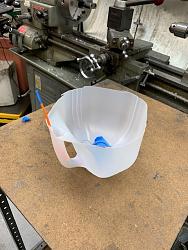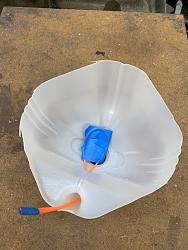Have you ever heard someone comment that a person is a “born inventor”? That really pisses me off! It implies that the rest of us are not endowed with such a gift.
The fact is, we are all born inventors. When a child is born, they soak in the world. All the while, they are inventing insights that make sense of what comes in on their senses.
When they master enough language skills, questions flood out to all of the haggard adults within earshot. Among these “childish” questions are always a few profound gems.
Fast forward to adulthood. Those able to still generate “childish” questions often become inventors. There is a balance here. They must be able to look at the world and pose childish questions. But then they must switch gears and have the skill and knowledge to answer those same questions. This is invention.
Have you ever heard someone say that a person did not invent something because they later found it on Amazon or eBay? That really pisses me off! The fact is that if someone invents something… they invented it. The creative process is valid regardless of who went through it before. OK, the U.S. Patent and Trademark Office is not going to give you credit but that must not be your motivator. Filtering your ideas based on money or fame will likely give you neither. Invent for the joy of it. Invent to figure stuff out.
It is perfectly valid for an inventor to surf the web looking for past ways people solved the problem at hand. In patent law, this is called “Prior Art”. The challenge is to build on this past creativity and come up with something new. Did you notice that I did not say “come up with something better”? That would be yet another self-defeating obstacle.
My ears always perk up when I hear someone say that something can’t be done. I just love proving them wrong. Not to make them look bad, but for the fun of solving what appears to be a difficult problem.
Maybe the problem, as stated, has no solution. I then rely on an adage I picked up many years ago – “If you can’t solve the problem, change the problem.” It is not a silly quip. Extremely important problems have been solved by looking at it in a fresh way.
Ever heard someone say they tried to solve a technical problem but failed? To me, this means they stopped trying. An essential part of inventing is to have your idea not work as expected. But then it is time to study the “failure”, learn from it, refine the idea, and try again. The trick is to “fail fast”. Throw together a crude prototype, learn from it, and then take it apart. Only when the invention has been proven to work should a polished version be constructed.
The only truly doomed ideas are those that depend on a violation of physics. This is where skill and knowledge come in. You have a hot idea for a perpetual motion machine? Forget about it. Anti-gravity boots? Find another way to spend your time and money. But what about making something spin for a long time by using better bearings? How about boots with massive electromagnets in them? Fair game.
If you are a member of the homemadetools.net community, you are an inventor. No idea is too trivial to share. Maybe your tiny idea sparks another inventor to see their problem in a new light and the result is earthshaking. Maybe you read that trivial idea and became inspired to greatness.
Of supreme importance is understanding that “all of us are smarter than any one of us”. As a community, we can invent just about anything (unless it violates physics).


 LinkBack URL
LinkBack URL About LinkBacks
About LinkBacks




 Reply With Quote
Reply With Quote




Bookmarks